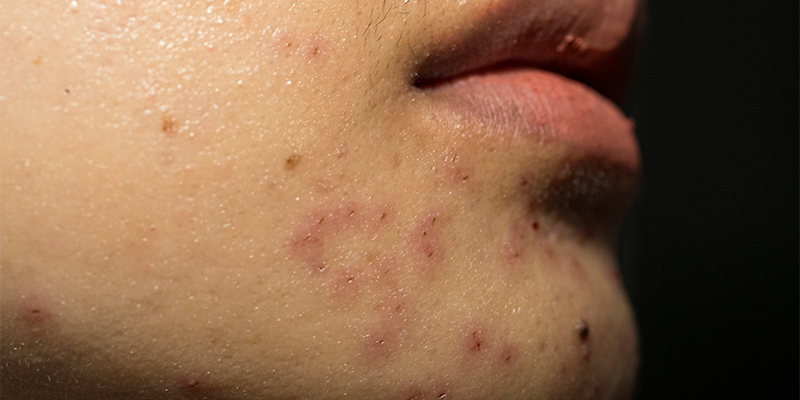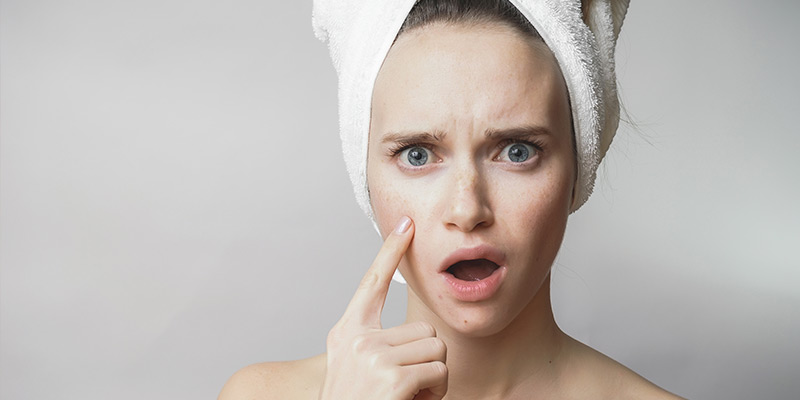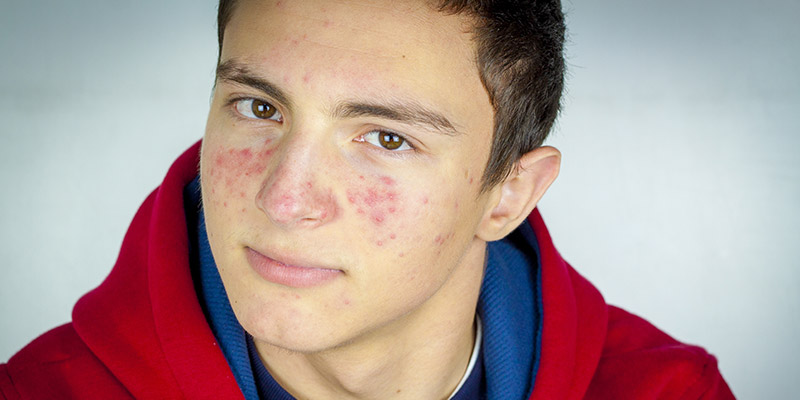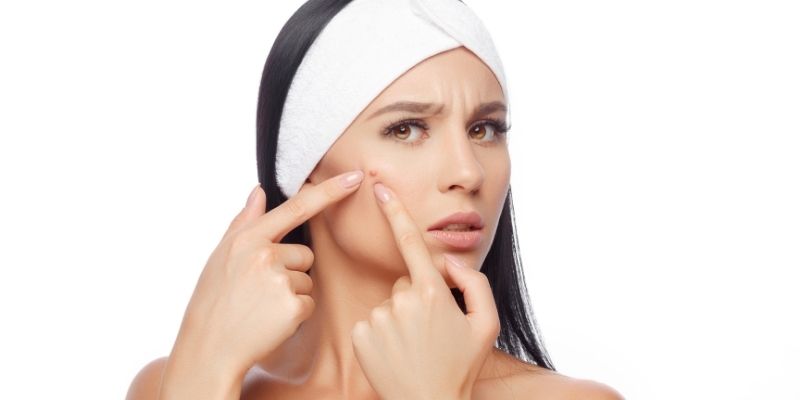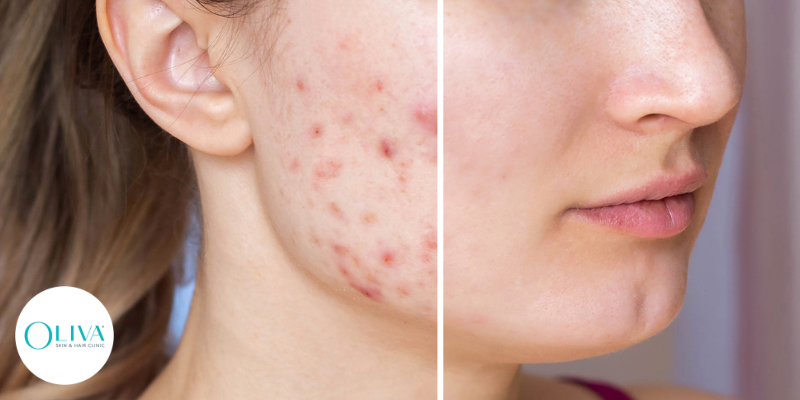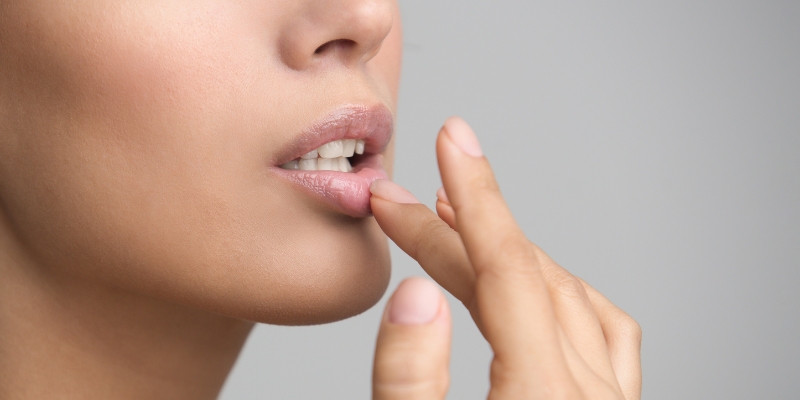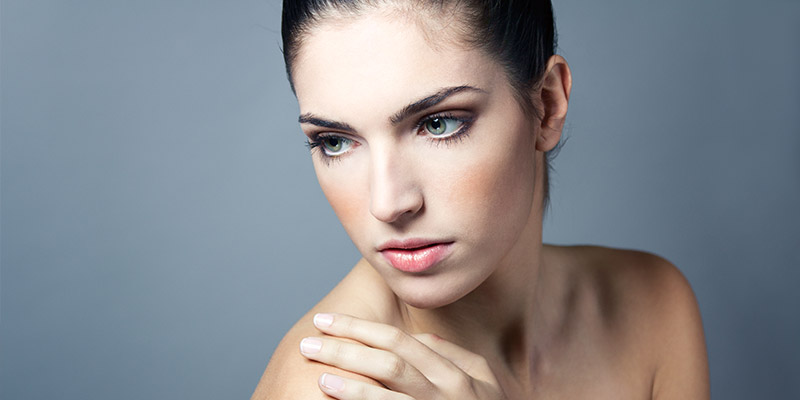How Do You Treat PCOS Acne?
Acne is a fairly common occurrence as we go through puberty. The hormonal changes that occur in the body during this stage of life are considered the prime culprits of causing the acne. But, what if similar hormonal changes continue beyond puberty and make your acne persistent and worse? Polycystic Ovarian Syndrome or PCOS is a common hormonal issue that concerns Indian women. In addition, PCOS acne is commonly seen symptom in women, who may struggle to deal with this along with the other symptoms of PCOS.
Can PCOS Cause Acne?
Acne due to PCOS is a common manifestation among women who suffer from this medical condition. PCOS is characterized by the presence of high levels of the male hormone, androgen. This hormone causes excessive hair growth and progressive acne that can even become cystic in nature. High blood sugar levels also contribute to the increased incidence of acne in women with PCOS.
The lower half of the face, namely the cheeks, chin, and jawline along with upper neck are primary areas that are affected by PCOS acne. Acne due to PCOS can also be seen on the upper back and chest. One in 10 women suffers from PCOS and among the causes of acne dealt and treated by doctors, more than a quarter of the women suffer from PCOS.
Must Read: How To Get Rid Of Hormonal Acne?
Is PCOS Acne Different From Regular Acne?
Regular acne is caused by simple causes such as excess production of natural oils by the skin, pore-clogging, and bacterial infection of the blocked pores. While the main mechanism of acne formation remains vitally the same, the reason behind the increased sebum (natural oil) levels is specific to the high androgen levels seen in PCOS women. They are seen as knots under the skin that become infected and inflamed. Regular acne is mainly present on the top layers of the skin.
PCOS acne pattern also differs from regular acne as the frequency and distribution of PCOS acne are on the lower half of the face, with increased chances of cystic acne forming here. Regular acne, on the other hand, can form anywhere on the face.
What Are The Causes Of PCOS Pimples?
Polycystic Ovarian Syndrome brings about many changes in the body that cause PCOS acne. These are –
- Increased Sebum Production: Androgen levels promote sebum production by the skin’s oil glands. High levels of sebum increase the chances of the pores becoming blocked and developing into whiteheads or blackheads and eventually acne.
- High Blood Sugar Levels: In PCOS affected women, hyperinsulinemia is commonly seen. This means that the insulin being produced by the body is not being used efficiently leading to increased blood sugar levels. This condition triggers the ovaries to produce more amount of androgens, thus aggravating the acne occurrence by producing higher levels of sebum.
- Inflammation: Chronic inflammation is seen as an effect of the PCOS hormonal imbalance. This makes the skin easily susceptible to transform a simply blocked pore into cystic acne as the immune system becomes overactive to bring down the consistent inflammation.
- Bacterial Infection: A pore blocked with excess oil, dirt, and grime becomes a suitable environment for acne-causing bacteria Propionibacterium acnes to grow in. The infected pores become pus-filled pimples in a short period of time. These can also progress and set deeper into the skin to form PCOS cystic acne.
- Stress: An ignored cause of PCOS acne is emotional stress. Physical appearance is of importance to women and when it is ruined due to acne, it can easily affect the psyche and increase stress levels. Stress wreaks havoc with hormone production and can intensify the PCOS acne problem.
Must Read: How To Remove Pimples From Oily Skin?
What Are The Symptoms Of PCOS Acne?
- Increased sebum leading to the skin is oilier than usual
- Blocked pores forming pimples
- Inflammation at the site of the PCOS acne
- Redness around the affected area
- Pain may be present depending on how deep the acne has grown
- The breakout that oozes out pus
Because of the general nature of how PCOS acne develops and go into the skin’s deeper layers, they often leave behind prominent acne scars.
Dietary Supplements For PCOS Acne
Taking certain dietary supplements have been known to help women alleviate some symptoms of PCOS acne. Omega-3 fatty acids, cod liver oil, zinc, magnesium, probiotics, flaxseed, etc. can help reduce inflammation and bring down insulin levels. Vitamins for PCOS acne management include vitamin D, A, and C. Vitamin D as it actively takes part in the egg/follicle maturation in the ovaries and is most commonly recommended.
Before you start taking any supplements, consult a dermatologist and a nutritionist to understand your body’s individual needs better and take the right dosage.
Must Read: How To Get Rid Of Pimples On Forehead?
How To Treat PCOS Acne?
Treatment of PCOS acne involves therapies that treat the visible symptoms on the skin and those that target to underlying causes of PCOS. Various forms of treatment such as over the counter medications, oral contraceptive pills, antiandrogen drugs, retinoids, laser therapy, light therapy, etc. are employed. An appropriate treatment course is charted out by dermatologists depending on the severity of your PCOS acne
- Chemical Peels: When the acne is not too severe, a chemical peel can be done on the face to exfoliate the skin under controlled medical conditions and unclog the pores. Alpha hydroxy acids and beta hydroxy acids that are derived from natural sources like plants are used in chemical peels in certain concentrations, that are deemed safe for use on the skin. This treatment can help to get rid of PCOS acne when it is in the initial stages.
- Oral Contraceptives: There are various types of birth control or contraceptive pills available. Those that work towards stabilizing the hormone levels in the body can work well as PCOS acne cure. They usually contain ingredients such as Ethinyl estradiol, progestin norgestimate, and norethindrone acetate.
- Retinoids – Both topical and oral retinoids can be used for PCOS acne treatment. When it comes to topical retinoids, their usage should be done as directed as they can make the skin sensitive to sunlight. Ideally, they should be applied to the affected areas in the evenings followed by using sun protection in the form of sunscreens. Oral retinoids like isotretinoin are generally prescribed for treatment of acne of all types, including PCOS pimples.
- Antiandrogen Drugs – The increased levels of androgens in the female body that is causing excess sebum production can be brought under control with prescription medications that lower the androgen levels.
- Antibiotics – To bring down the infection caused by the acne-causing bacteria, antibiotics are prescribed in certain dosages. Only take antibiotics as advised by the doctor in order to avoid unnecessary side effects.
- Laser Therapy – Lasers can be used to specifically target the affected skin with concentrated beams of light and exfoliate it thoroughly. This will help unclog the pores and get rid of the infection-causing bacteria as well. Laser treatment further aids in the process of PCOS acne treatment by reducing sebum production. A decrease in natural oil production will reduce acne breakouts in the future and even prevent scarring.
- Over the Counter Treatment: Sulphur, salicylic acid, and benzoyl peroxide products are available with a prescription for acne treatment. These products may work in the case of mild acne, but severe acne seen in PCOS will not yield to them.
Must Read: Can You Remove Pimples In One Day?
Tips For PCOS Acne Control And Management
- Do not pick at pimples or try to pop acne at home.
- Wash your face every day with a suitable cleanser.
- Use a moisturizer and sunscreen apt for your skin type.
- Use non-comedogenic makeup and skin care products.
- Remove all makeup before going to bed.
- Eliminate unhealthy carbs and fat from it.
- Eat a balanced diet with ample amounts of fruits and vegetables.
- Take vitamin and mineral supplements, after consulting a physician.
- Eat anti-inflammatory foods on a regular basis.
- Drink plenty of water in the day to help the body to flush out toxins.
- Invest 30 minutes every day in moderate exercise to enhance circulation, manage blood sugar levels, and reduce body fat.
- De-stress with mind-calming exercises such as meditation, deep breathing, and yoga to alleviate the factors related to stress that can aggravate PCOS acne.
- Try your best to get seven to eight hours of sleep every night as this is the time the skin cells replenish and rejuvenate themselves the best.
Acne due to PCOS is very common among Indian women, which makes the questions about menstrual cycle and procedures for testing PCOS related hormonal imbalance compulsory in the diagnosis and treatment of acne by experienced dermatologists. It is a stressful skin condition to experience as it can last a couple of years. Early treatment under the right supervision can help you greatly in keeping the PCOS acne under control and avoid acne scarring as well.






